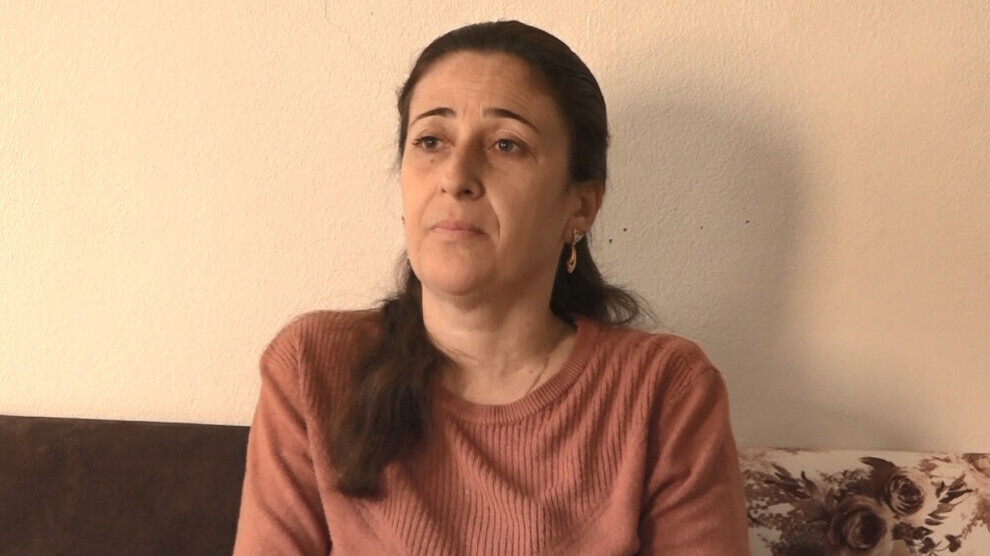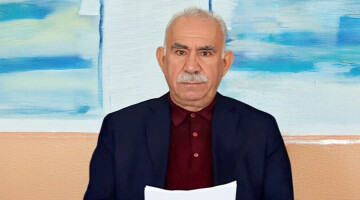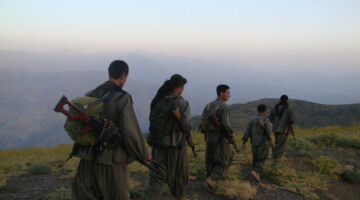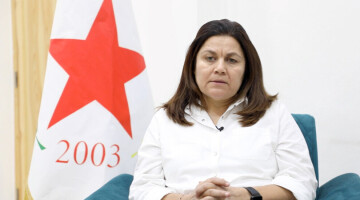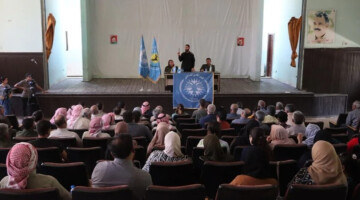Gulistan Gulo was born in 1982 in the Hilêliyê district of Qamishlo. She is married and has four children. Like all members of the Gulo family, she is closely associated with the Kurdish liberation movement. She has been involved in women's work since 2011 and is now active in the women's umbrella organisation Kongra Star in Qamishlo.
As a child, she drove with her family to the Bekaa Valley in Lebanon on 15 August 1991, and met Abdullah Öcalan there. She says about this encounter: "I was still a child, but he radiated a strength that continues to this day. His ideas were a source of strength not only for the Kurdish people, but for all the different population groups. Many of my family and many of our neighbours came with us. There I learned that women were joining the struggle for a free people and a free Kurdistan."
Gulistan was already politically active before the Rojava revolution: "My third child was not yet born. I knew that I needed to be more active in my work. However, my children were small and I had to look after them. As I became more active in 2010, the Ba'ath regime's repression against my family increased. In 2011, a women's movement congress took place in Afrin and I decided to join the women's liberation struggle. This made it clearer to me how women work and how we deal with women in society. After the congress, I worked as a board member of Kongra Star in Qamishlo."
At that time, the women's association was still called Yekîtiya Star. Gulistan says: "It was a difficult time; the regime repression was heavy everywhere. The regime prevented women from organizing. So it wasn't like today. At that time, women could hardly leave the house. Today it is different. Women can work and fight anywhere. That is why we see the Rojava revolution as a revolution that began with women getting out of the house."
In the run-up to the Rojava Revolution in 2012, conditions changed, says Gulistan: "The population rebelled against the oppression of the regime. It was clear to us that we had to work even more now. The Democratic Syria Council (MSD) was founded in 2015 and the women's organization included not only Kurds, but women from all population groups in the region. There is no difference between ethnicity and religion. The Arab women did a very good job. In the Liberated Areas, efforts were made to break the oppressive mentality. Instead of despotic ideas, Abdullah Öcalan's democratic ideas about freedom flourished."
Gulistan Gulo's family has been deeply involved in the Kurdish liberation movement since the 1980s, and dozens of family members have died in the fight for freedom. "We also had many dead during the Rojava Revolution. On 9 November 2021, my uncle Yusif Gulo fell together with two of his grandchildren. Apê Yusif served the Kurdish cause for over forty years. He was the first in our family to fight for the liberation of women. We all listened to him and benefited from his thoughts. Our martyrs reinforce our determination. We will keep fighting until a free life is possible everywhere in Kurdistan. We raise our children in this spirit."

